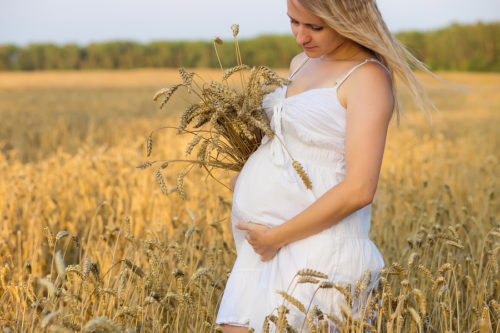What if our leaders would marry the land?

In ancient Ireland, the ceremony of crowning a king included a marriage ceremony in which the king would marry the land, or more accurately marry the Goddess of the land.
This marriage meant that the King swore to protect the land and the people, and be a caretaker of the earth. In return, when a King was favoured by the Goddess:
- he would rule with wisdom,
- the land would be fertile and prosperous,
- the country would always be victorious in war.
When that sacred contract was broken, the land was no longer fertile.
This practice of marrying the land was so ingrained in the Celtic way of life that it continued well into the 16th Century in Ireland.
In Ireland, the marriage of the King to the land would take place during the Celtic celebration of Beltaine, on the First of May. Beltaine celebrates the marriage of the sun [the King] and the earth [the Goddess] because May is the month when the earth starts to come back to life under the warmth of the sun and the green reaches toward the sky. It’s a time of fertility and new beginnings.
Beltaine represents union between male and female. The May Pole represents a phallus placed into the earth to symbolize fertility. The crops and livestock were blessed at Beltaine, a perfect time for the marriage of the king to the land.
How we lost the Goddess
I believe the loss of the understanding of the Goddess/Divine Feminine and her relationship to the land is why we have become such poor caretakers of the earth today, and find ourselves in an environmental crisis.
Modern “civilized” societies have lost the understanding that the earth is our mother, a Divine Feminine form who can nurture us if we respect her as such.
All ancient cultures honored the Divine Feminine, the Goddess, which went hand in hand with their respect and care for the earth.
Many books have been written on how humans lost touch with the Divine Feminine:
- The Alphabet Versus the Goddess: The Conflict Between Word and Image (Compass)
,
- When God Was a Woman
, and
- The Chalice and the Blade: Our History, Our Future
are just a few. I won’t attempt to cover all the history and theories here.
In If Women Rose Rooted: A Journey to Authenticity and Belonging, author Sharon Blackie theorizes that, as the old stories started to be written down by Christian monks, the divinity of the Goddess took a back seat. The male dominated religion couldn’t allow such divine power in the hands of the female, so the tradition of marrying the land was lost along with written history.
Yet, indigenous cultures today still honor the feminine and the land.
The Iroquois Great Law of Peace, on which our United States Constitution was modeled, calls for the clan mothers to choose the leaders of the tribe and they could veto any council action that may result in war.
“It is the mothers, not the warriors, who create a people and guide their destiny.” Luther Standing Bear, Oglala Lakota
How can we marry the land today?
Think of what wedding vows usually include: “to love, honor and respect, to care for in sickness and health.”
Make a commitment to be a caretaker of the earth, to marry the land. Here are some ways to do it:
- Recycle always
- Bring re-usable shopping bags to the grocery store – always
- Carry a refillable water bottle instead of buying individual pre-packaged water bottles
- Offer corn meal or tobacco as a blessing/offering to the earth on a regular basis
- Pick up litter, regardless of whether or not it’s yours
- Think about your impact in all of your actions
- Think ahead 7 generations
- Instead of seeding a water-guzzling lawn, plant a wildflower meadow
- Support environmental organizations
- Plant trees
- Buy local food
- Turn off lights and unplug appliances when they’re not in use
- Pay bills online to save paper
- Bless the land, bless the trees
- Write/call your Congressional representative demanding they take action on environmental causes and climate change. Remind them of their sacred duty to protect the people and the earth on which we live.
- Better yet, vote for political leaders who will make such a commitment to caring for the land.
Such commitments can be the equivalent of marrying the land, honoring and caretaking her. And we will all be better off for it.
Molly Larkin is the co-author of the international best-seller “The Wind Is My Mother; The Life and Teachings of a Native American Shaman” and other books on health. She is passionate about helping people live life to their fullest potential through her classes, healing practice and blog at www.MollyLarkin.com

